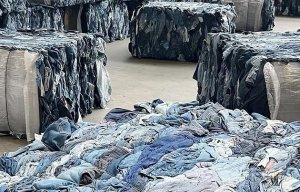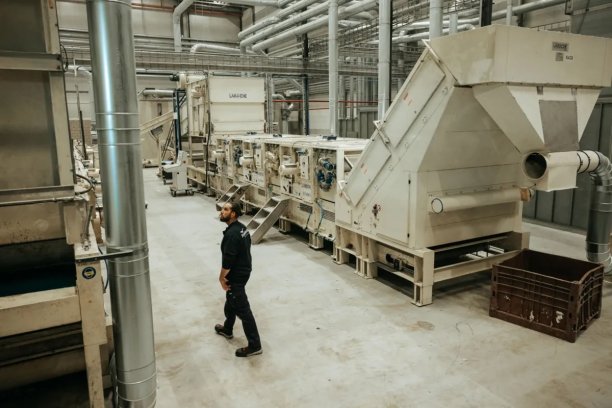
ReHubs to outline Europe-wide strategy in Dornbirn
Post-consumer textile waste transformed into nearly 50,000 garments for Dutch retailer Zeeman.

21st October 2025
Innovation in Textiles
|
The Netherlands
A closed-loop recycling project has successfully transformed 24 tons of post-consumer textiles into nearly 50,000 garments for Dutch retailer Zeeman, with each product containing a high-rate of 70% recycled content.
This achievement represents a major milestone in accelerating textile-to-textile recycling in Europe.
The project was initiated by the Boer Group, with financing support from Refashion, both active partners of Brussels-based ReHubs, and the entire value chain was established within Europe.
Textiles were collected and sorted in France before being prepared by mechanical recycling specialist Frankenhuis (part of the Boer Group) in the Netherlands, where colour sorting and defibration took place. Blue and white textiles were selected to naturally influence the colour of the final yarn.
The feedstock was then transferred to Italy, where Spinaker spun the yarn and Stella Sky knitted the fabric. Zeeman, as the final customer, played a vital role by defining the type of product to be created and ensuring it aligned with consumer expectations.
The project, which ran over eight months, was designed to test both the technical and financial feasibility of producing garments with high levels of recycled content in Europe.
The project demonstrates that post-consumer textiles can be transformed into high-quality yarns and garments and a circular value chain with collaboration across collection, sorting, recycling, spinning, and manufacturing can be achieved within Europe. An accompanying environmental impact report confirmed the benefits – the environmental footprint of the product is significantly reduced, including lower GHG emissions, reduced water use and decreased energy consumption.
“By building a fully circular value chain here in Europe, we have shown that textile-to-textile recycling is not only possible, but commercially viable,” said Véronique Allaire, head of circularity at Refashion. “It’s a powerful signal that our industry can lead the shift towards a truly circular economy.”
“At Zeeman, we want to show that circular innovations can also be accessible for affordable clothing for everyone,” added Mariëlle van Dillen, a senior buyer at Zeeman. “The sweaters from this project were a great success in our stores, selling very well and demonstrating that customers value affordable circular fashion. This project brings us one step closer to our ambition to reuse textiles more often and reduce our impact as a retailer.”
ReHubs has recently updated its strategy, aiming to break the supply-demand deadlock in which recyclers struggle to scale without brand commitments, and brands are lacking access to cost-competitive, reliable recycled fibres. This project shows how collaboration across the value chain from collection and sorting to recycling, spinning, and retail can deliver real products to the market.
With a circular European value chain now demonstrated, this project sets a benchmark for future initiatives and strengthens momentum towards scaling textile-to-textile recycling across Europe.

Business intelligence for the fibre, textiles and apparel industries: technologies, innovations, markets, investments, trade policy, sourcing, strategy...
Find out more